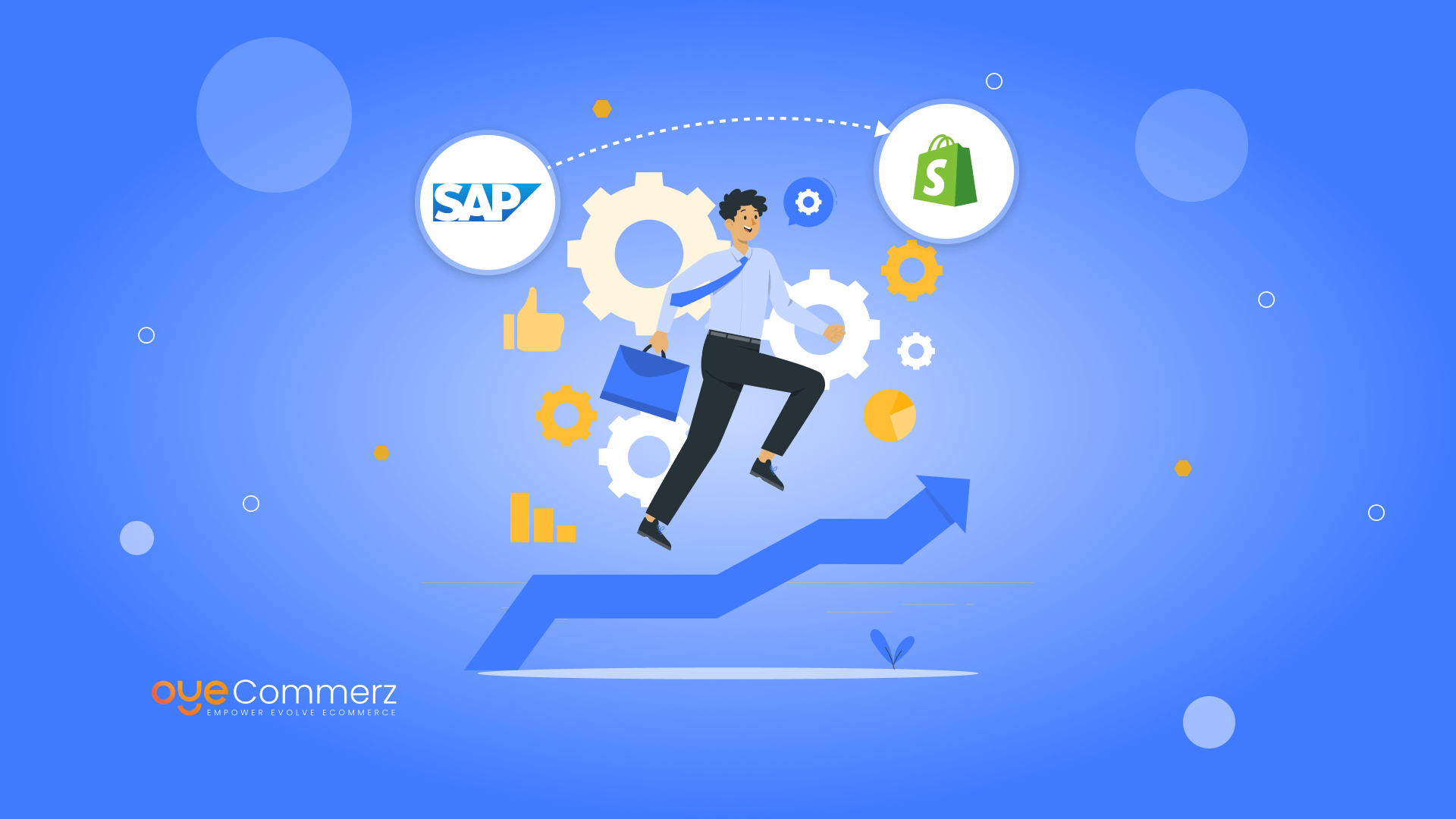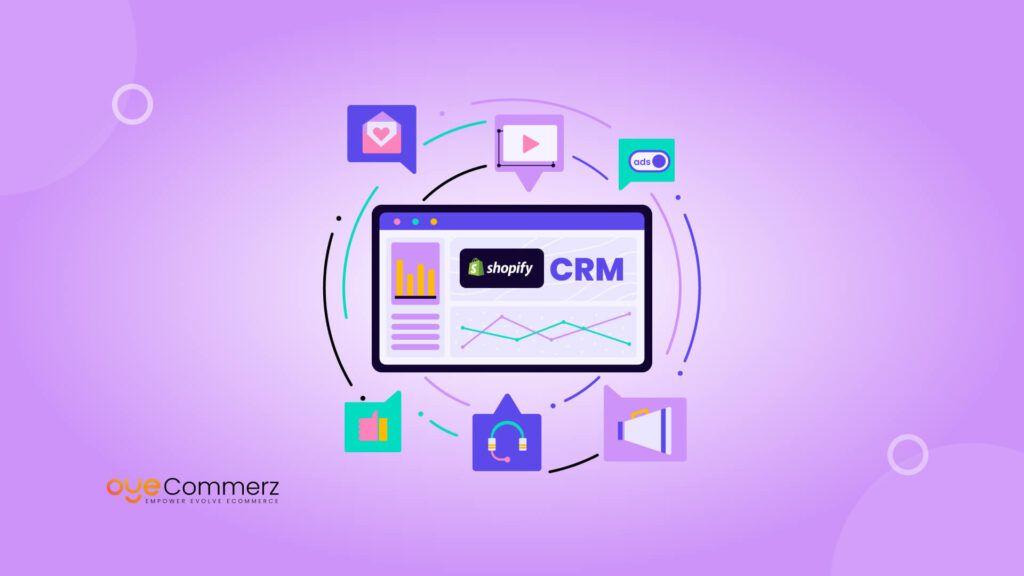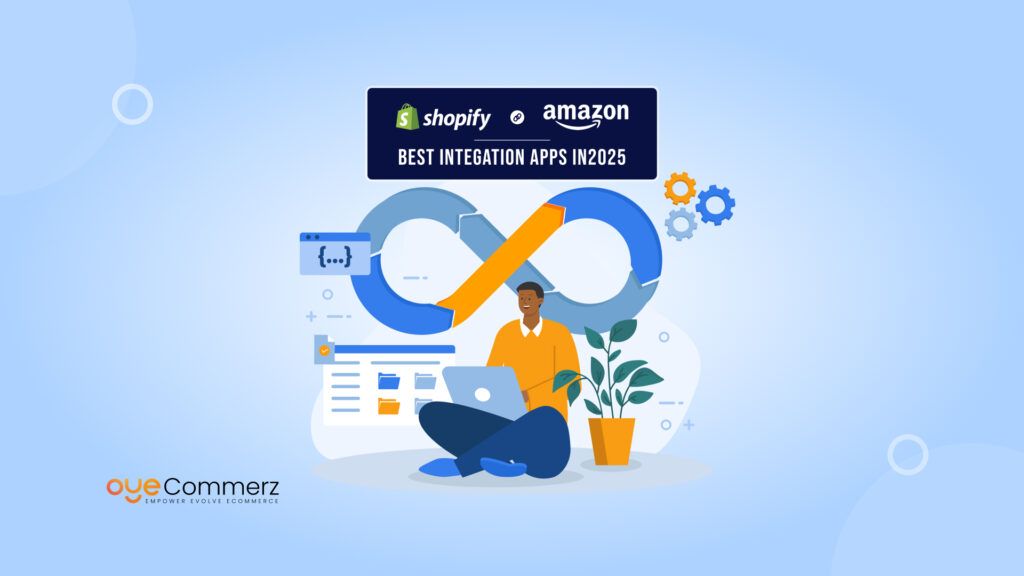Switching from SAP Commerce Cloud to Shopify can be a transformation for enterprises seeking agility, scalability, and simplicity in their eCommerce operations. While SAP Commerce Cloud is robust, it often requires significant resources to maintain and scale. Shopify, on the other hand, offers a modern, user-friendly platform designed for fast-growing businesses. With its intuitive interface, extensive app ecosystem, and flexible pricing, Shopify makes managing online stores easier and more cost-effective.
If your enterprise is looking to reduce complexity, boost performance, and adapt quickly to market changes, migrating to Shopify might be the solution you need. In this blog, we’ll explore the key benefits Shopify brings to the table and why it’s the right choice for modern businesses.
Table of Contents
ToggleWhy Enterprises Are Migrating to Shopify
There are deep reasons to shift to shop on Shopify. Nowadays, in an ever-changing world, enterprises face more pressures in being ready to adapt to changes within the markets for better customer experience and for optimizing cost, rather than increasing its dependency on SAP Commerce Cloud, which is famous for deep customization but is complex for an enterprise to be used for agility and speed. And here comes Shopify-more intuitive.
Agility and Speed
- The Business houses demand flexibility- whether it’s launching a new line of products, reprising market trends, or altering some aspect of the business based on region expansion. With SAP Commerce Cloud, simply due to its sheer infrastructural and timeline requirements, it takes up considerable time and resources to make even minute alterations. Shopify allows for speedy updates and modifications without much development resource usage and also enables businesses to move much faster.
Reduce Total Cost of Ownership
- Enterprise migration to Shopify has primarily been due to the drastic drop in the total cost of ownership. The operational costs for one are directly charged by the complex environment of SAP Commerce Cloud with very heavy licensing fees and constant technical support requirements. Shopify, in contrast, has a more economical model of pricing with low maintenance costs that can help enterprises utilize their resources better.
Implemented Operations
- Operating SAP Commerce Cloud often requires large in-house developer teams or significant investments in expensive third-party agencies. Shopify simplifies the situation with a more friendly interface that can easily be administered without the requirements of IT teams and reliance. The dependence of such resources on the IT team is lessened since such could be applied to strategic endeavors rather than to the daily mundane management of the platform.
Key Benefits of Migrating from SAP Commerce Cloud to Shopify
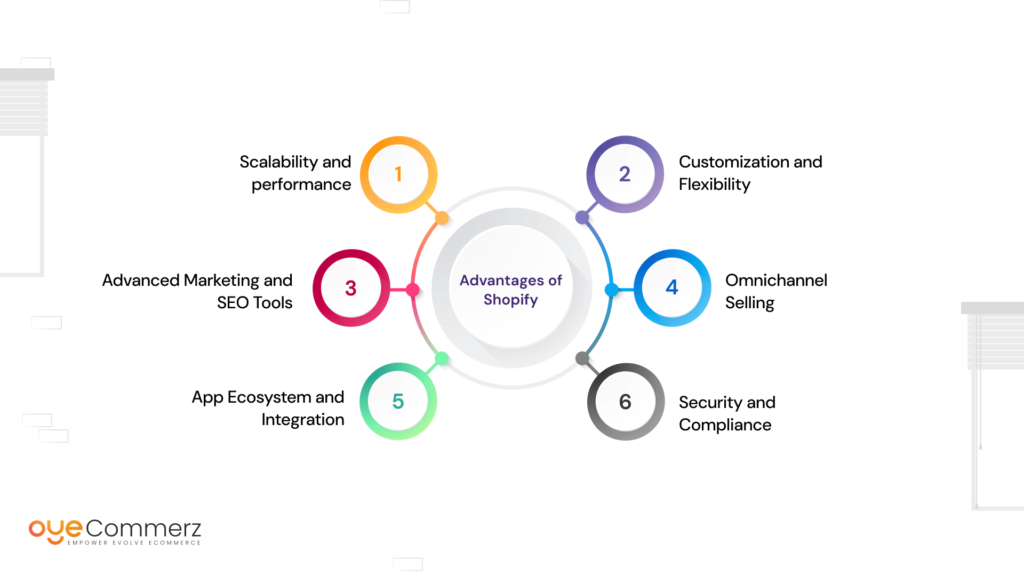
Shopify is more about unlocking new growth and innovation possibilities rather than saving money or simplification. Shopify is designed as an enterprise-level solution for large-scale businesses while maintaining its scalability and flexibility.
Scalability and performance
This is a time of high traffic for enterprise businesses, especially with the peak season or sales events, at which point stability of the platform is important. Shopify is designed to bear large volumes of traffic without compromising on its performance. With Shopify, businesses can scale their operations, without worrying about site downtime or sluggish performance.
Customization and Flexibility
Whereas SAP Commerce Cloud is somewhat of a customization-rich setup, Shopify allows businesses to create rich unique experiences through its varieties of customizable themes and plugins. Also, being a product of API-driven architecture, Shopify also happens to be relatively easy to integrate with third-party services; hence, enterprises can go about building custom functionality, without much development overhead involved in the process.
Advanced Marketing and SEO Tools
Visibility of the game in today’s digital marketplace is the name. Shopify, in marketing and SEO tools, provides various integrated functionalities that help the business optimize its store for search engines while running targeted ad campaigns and allows the business to monitor real-time performance metrics. Shopify can reach target audiences more effectively and boost sales using seamless integration through several platforms.
Omnichannel Selling
It can integrate sales channels, which is maybe one of the most important advantages Shopify has. All enterprises, whether purely online or purely offline, engaging with social commerce and other marketplaces, can be managed from a single interface. Such an omnichannel approach will allow them to present consistent customer experiences across all touchpoints while simplifying inventory and order management.
App Ecosystem and Integration
Shopify owns a very massive app marketplace comprising thousands of applications along with a detailed process for getting integrated. A business would require high-grade analytics or CRM tools that the Shopify ecosystem can provide, or it could require supply chain management software. This flexibility enables the enterprise to select the best tool for a task at hand and integrate it into the Shopify store.
Security and Compliance
The main requirement would be that the e-commerce platforms offered by the businesses are compliant with well-established security standards such as PCI DSS (Payment Card Industry Data Security Standard), besides being compliant with local data protection regulations. Shopify meets this compliance requirement by offering secure hosting and scheduled updates in advance of emerging vulnerabilities to keep the platform. That removes the burden of managing compliance from the internal books of the enterprises and provides a safer shopping experience for customers.
Related Read: Common Challenges in SAP Commerce Cloud to Shopify Migration
Ongoing Support and Post-Migration Benefits
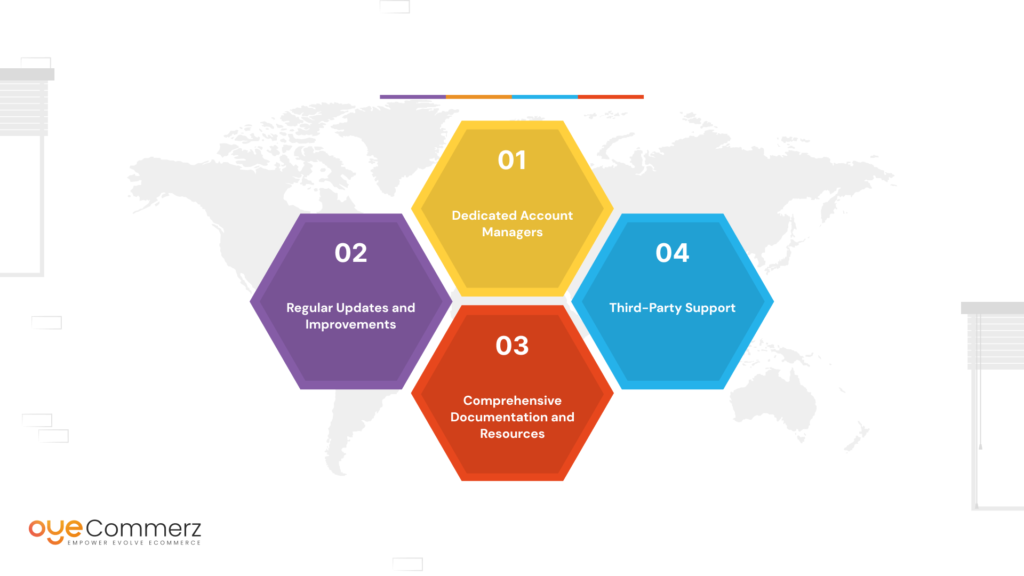
The switch is not the end of migration after that. Moreover, it needs to be followed by long support and optimization for true success. Shopify offers many benefits after the migration procedure can easily help to maintain and scale up the operations of enterprises.
Dedicated Account Managers
- Shopify customers receive dedicated account managers who provide strategic guidance and support. Account managers will provide strategic guidance and support. Account managers can help enterprises deal with updates on the platform and new growth opportunities, and ensure that the store is running well.
Regular Updates and Improvements
- While updates in SAP Commerce Cloud seem tough and expensive, Shopify plays the platform easily by making available updates that increase functionality, safety, and performance. They do it seamlessly so that enterprises don’t bother to make a hassle out of new features from this change or take a detour from upgrading the store on their own.
Comprehensive Documentation and Resources
- Easy access to a broad knowledge base, community forums, and a network of partners can be leveraged in troubleshooting and optimization of the store. Therefore, self-service enables businesses to use the platform optimally and minimize their dependency on third agencies.
Third-Party Support
- It also has a partner ecosystem of certified developers, agencies, and consultants on enterprise solutions. Such an arrangement allows it to tap into the same network for custom development, migrations, or strategic advice to ascertain it has all the expertise that will be required long in the future.
Important Points to Remember
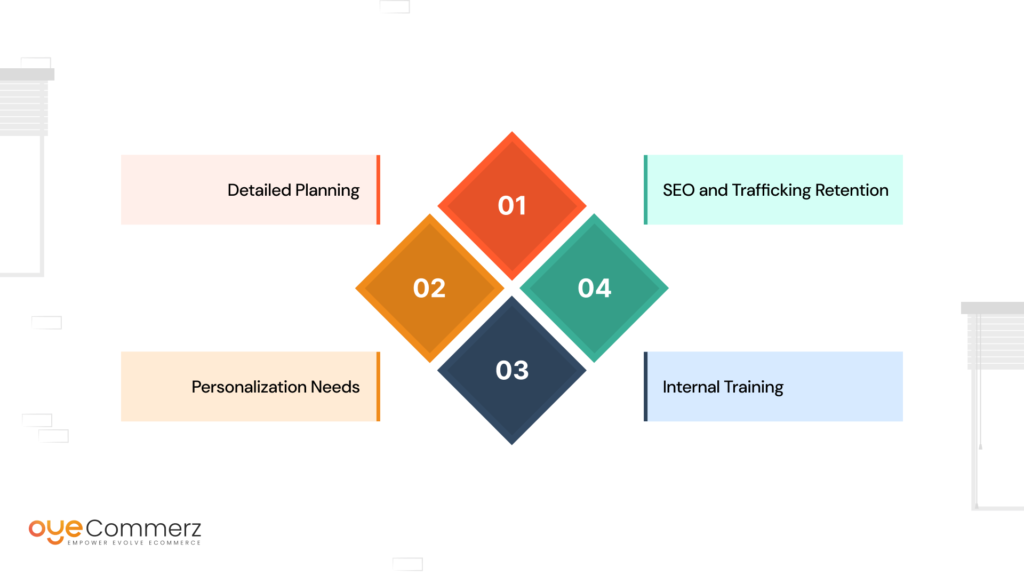
The main factors to be considered by Enterprise customers who want to transition their solutions out of SAP Commerce Cloud and into Shopify are
Detailed Planning
Detailed planning was highly involved in the migration between platforms, especially in data migration, retaining the search engines, and functionality. Here, only seasoned migration experts could make it a smooth affair for enterprises.
Personalization Needs
Where flexibility and customization are paramount, Shopify is strongly flexible; more complex or bespoke businesses will need to consider Shopify to decide if it can meet their more stringent needs. Shopify’s API and its app environment offer substantial avenues towards customization, but the core functionality must be determined if it can replicate on a new platform.
Internal Training
The friendly Shopify platform would reduce the business’s dependence on IT teams, but the business needs to train its in-house teams on using the platform. Shopify is reasonably intuitive, which makes it quite straightforward for non-technical people to manage the store, but initial training will ensure a much more hassle-free post-migration experience.
SEO and Trafficking Retention
Migration towards multiple platforms can be counterproductive for search-engine rankings if not controlled the right way. Therefore, it is made in such a way so as not to incur losses of traffic to the enterprises involved.
Simplify Your Migration with OyeCommerz!
At OyeCommerz, we specialize in seamless migrations that enhance your online store’s performance, scalability, and growth potential. Our team ensures a smooth transition, preserving your data, SEO rankings, and custom functionalities. Don’t let outdated technology hold your business back. Partner with OyeCommerz today and unlock the future of e-commerce with a platform designed for agility and innovation.
Contact us now for a free consultation and start your migration journey with confidence!.
Contact to Migrate your Site to Shopify Now
Conclusion
It brings a lot of benefits of migrating from SAP Commerce Cloud to Shopify for enterprises in terms of cost savings, flexibility, scalability, and an improved customer experience. Combined with some pretty powerful tools in marketing, SEO, and omnichannel selling, but with a seamless interface where businesses can be more innovative rather than managing the platform. Shopify, therefore, is a good replacement in contemporary agile forms of retail e-commerce operations instead of the old-fashioned enterprise platforms like SAP Commerce Cloud. However, the transition to Shopify and after establishing a well-designed plan for retail opening up opportunities promises long-term success.

